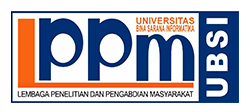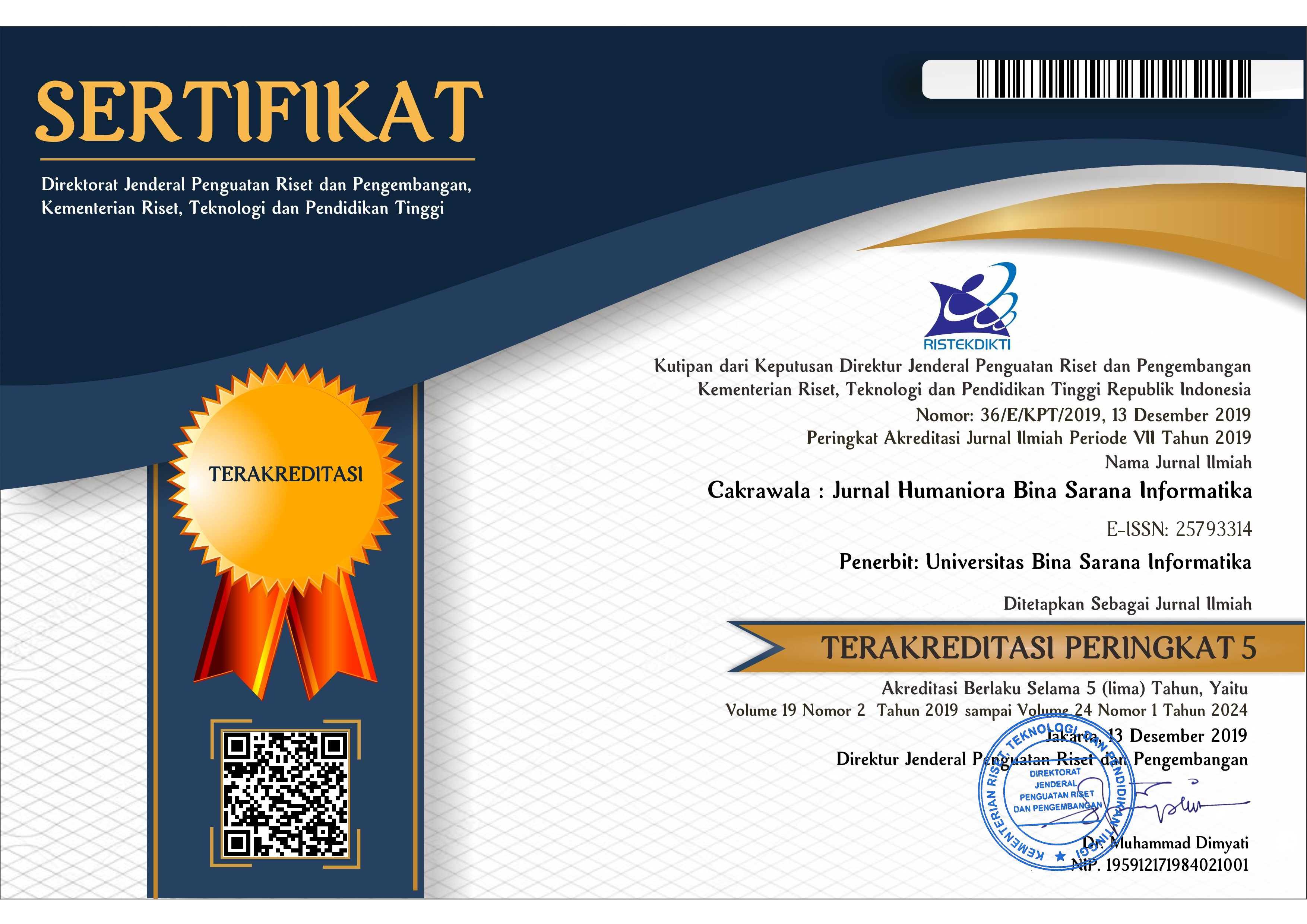Elaborasi Penggunaan Istilah Covid-19 Terhadap Pemahaman Masyarakat
Abstract
The COVID-19 pandemic that is threatening the world has caused anxiety for all parties, including the people in Denpasar City. Various attempts have been made to make the situation stable, one way is to share information within a positive elaboration terminology. The information is certainly delivered by foreign words that are currently so prevalent, and appears in one click through the Google search engine. In order to convey the intent and meaning that can be properly channeled to all levels of society, Policies related to handling the COVID-19 pandemic through the elaboration of several foreign terms such as lockdown, swab test, social distancing, etc. are required. This study aimed to find out how the foreign words can be well accepted by the community without risking the existence of Indonesian language. As a descriptive qualitative method, the main data is Covid terms that are informed to the public in Denpasar are collected using a polling technique through randomly distributing questionnaires and simulation. Finding data was used survey & observation methods, as well as documentation. It is hoped public can understand and implement the appeal as expected by the government, without reducing the existence of good and correct Indonesian.
Keywords: elaboration, foreign words, covid term
Full Text:
PDFReferences
Alfarizy, Putri. (2020). Kajian Budaya:Kebijakan Bahasa di Tengah Pandemi Covid19. Journal ANUVA (Volume 4) (3): 343-353, 2020 Copyright ©2020, ISSN: 2598-3040 http://ejournal.undip.ac.id/index.php/anuva 343.
Allianz Indonesia. (2021). Inilah 8 Istilah Baru Yang Muncul Di Tengah Pandemi Covid-19. https://www.allianz.co.id/explore/detail/inilah-8-istilah-baru-yang-muncul-di-tengah-pandemi-covid-19/104739.
Devianty, Rima. (2020). Eksistensi Bahasa Indonesia Pada Masa Pandemi Nizhamiyah. Journal NIZHAMIYAH (Vol. X) No. 2, Juli – Desember 2020 e-ISSN: 2086-4205 27 p-ISSN: 2086-4205 39.
Hariyanto, B. (2010). “Istilah-Istilah Khusus dalam Chatting (Sebuah Analisis Sosiopragmatik)”. Dalam Jurnal Adabiyyat (vol.9 no.2). Yogyakarta: UIN Sunan Kalijaga. http:// ejournal.uinsu-suka.ac.id/adab/Adabiyyat/article/view/793.
https://kbbi.kemendikbud.go.id
Komite Penanganan Covid-19 dan Pemulihan Ekonomi Nasional. (2020). Infografis COVID-19 (11 November 2020). https://covid19.go.id/p/berita/infografis-covid-19-11-november-2020. (diakses pada 11 November 2020).
Nissa, Rima Sekarini Immamun, dkk. (2020). “Pandemi Virus Corona, Ketahui Makna dan Tujuan IstilahCovid-19”. Dalam suara.com, 25 Maret 2020. https://www.suara.com/health/ 2020/03/25/144000/.
Sanga, Jhon F. (2020). Fungsi Bahasa dan Elaborasi Terhadap Istilah-istilah Asing Dalam Covid-19. https://thecolumnist.id/artikel/Fungsi Bahasa dan Elaborasi Terhadap Istilah-Istilah Asing dalam Covid-19 | The Columnist.
Sumarsono. (2017). Sosiolinguistik. Yogyakarta: Pustaka Pelajar.
Tim Pengembang Pedoman Bahasa Indonesia. (2016). Pedoman Umum Ejaan Bahasa Indonesia. Jakarta: Badan Pengembangan dan Pembinaan Bahasa Kementerian Pendidikan dan Kebudayaan.
DOI: https://doi.org/10.31294/jc.v21i2.10936
ISSN: 2579-3314


Dipublikasikan oleh LPPM Universitas Bina Sarana Informatika
Jl. Kramat Raya No.98, Kwitang, Kec. Senen, Kota Jakarta Pusat, DKI Jakarta 10450

This work is licensed under a Creative Commons Attribution-ShareAlike 4.0 International License










